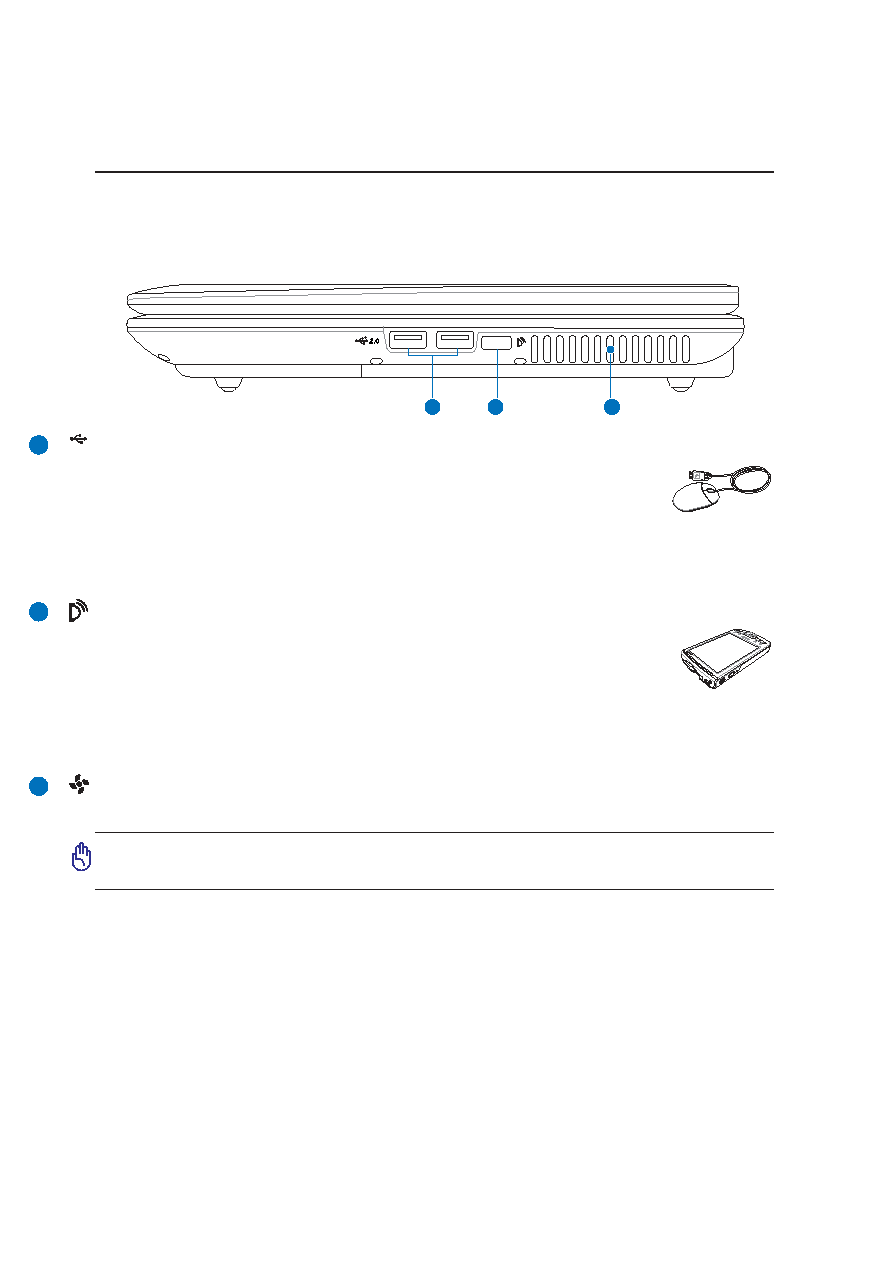
18
2 KnowingtheParts
Right Side
Refer to the diagram below to identify the components on this side of the Notebook PC.
1
2
3
2.0 USB Port (2.0/1.1)
The Universal Serial Bus is compatible with USB 2.0 or USB 1.1 devices such as
keyboards, pointing devices, cameras, hard disk drives, printers, and scanners connected
in a series up to 12Mbits/sec (USB 1.1) and 480Mbits/sec (USB 2.0). USB allows
many devices to run simultaneously on a single computer, with peripherals such as USB keyboards and
some newer monitors acting as additional plug-in sites or hubs. USB supports hot-swapping of devices
so that most peripherals can be connected or disconnected without restarting the computer.
2
3
1
Infrared Port (IrDA) (on selected models)
The infrared (IrDA) communication port allows convenient wireless data communication
with infrared-equipped devices or computers. This allows easy wireless synchronization
with PDAs or mobile phones and even wireless printing to printers. If your office supports
IrDA networking, you can have wireless connection to a network anywhere provided there
is a direct line of sight to an IrDA node. Small offices can use IrDA technology to share a printer between
several closely placed Notebook PCs and even send files to each other without a network.
Air Vents
The air vents allow cool air to enter and warm air to exit the Notebook PC.
IMPORTANT! Make sure that paper, books, clothing, cables, or other objects do not
block any of the air vents or else overheating of the Notebook PC may occur.

